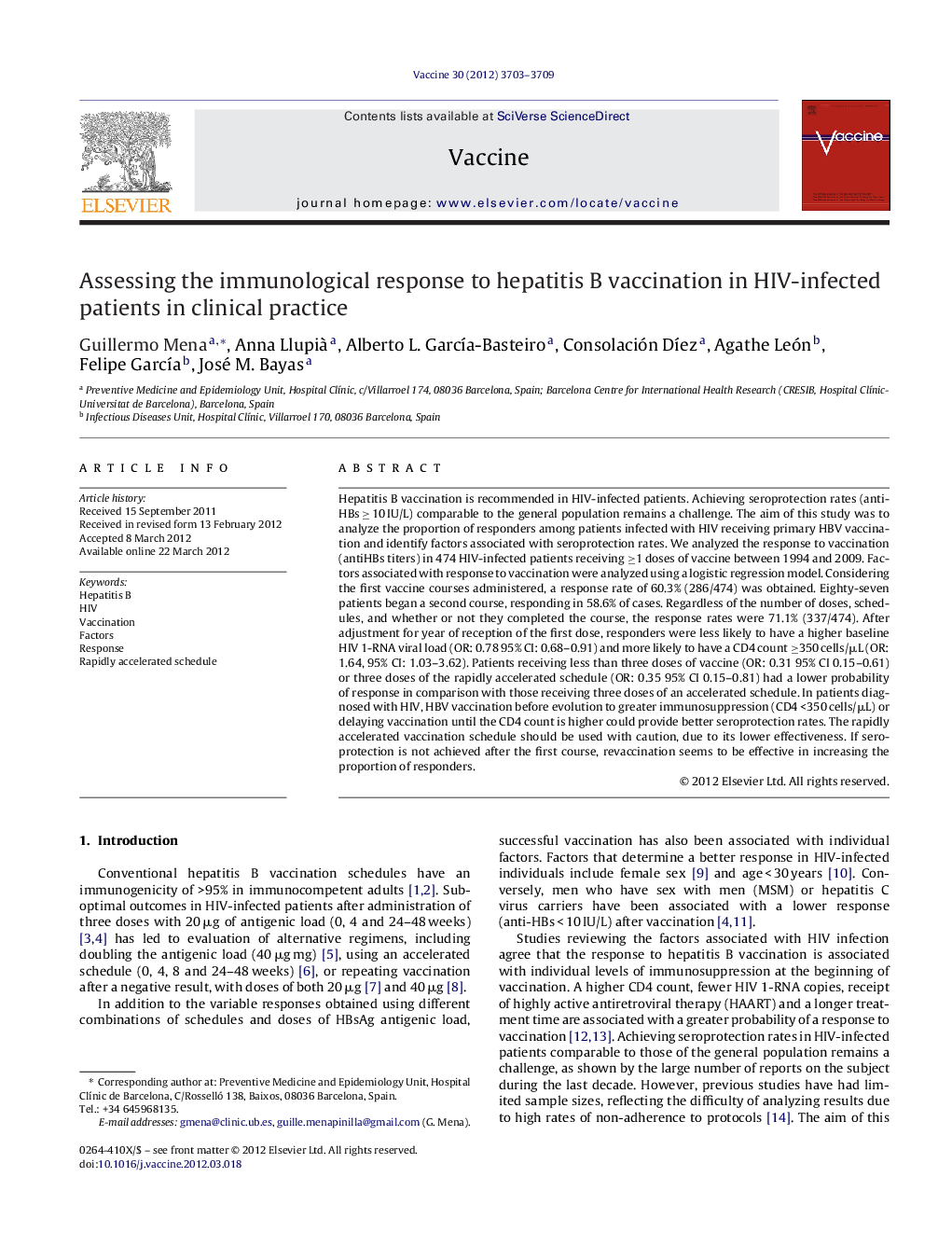| کد مقاله | کد نشریه | سال انتشار | مقاله انگلیسی | نسخه تمام متن |
|---|---|---|---|---|
| 2402632 | 1102827 | 2012 | 7 صفحه PDF | دانلود رایگان |

Hepatitis B vaccination is recommended in HIV-infected patients. Achieving seroprotection rates (anti-HBs ≥ 10 IU/L) comparable to the general population remains a challenge. The aim of this study was to analyze the proportion of responders among patients infected with HIV receiving primary HBV vaccination and identify factors associated with seroprotection rates. We analyzed the response to vaccination (antiHBs titers) in 474 HIV-infected patients receiving ≥1 doses of vaccine between 1994 and 2009. Factors associated with response to vaccination were analyzed using a logistic regression model. Considering the first vaccine courses administered, a response rate of 60.3% (286/474) was obtained. Eighty-seven patients began a second course, responding in 58.6% of cases. Regardless of the number of doses, schedules, and whether or not they completed the course, the response rates were 71.1% (337/474). After adjustment for year of reception of the first dose, responders were less likely to have a higher baseline HIV 1-RNA viral load (OR: 0.78 95% CI: 0.68–0.91) and more likely to have a CD4 count ≥350 cells/μL (OR: 1.64, 95% CI: 1.03–3.62). Patients receiving less than three doses of vaccine (OR: 0.31 95% CI 0.15–0.61) or three doses of the rapidly accelerated schedule (OR: 0.35 95% CI 0.15–0.81) had a lower probability of response in comparison with those receiving three doses of an accelerated schedule. In patients diagnosed with HIV, HBV vaccination before evolution to greater immunosuppression (CD4 <350 cells/μL) or delaying vaccination until the CD4 count is higher could provide better seroprotection rates. The rapidly accelerated vaccination schedule should be used with caution, due to its lower effectiveness. If seroprotection is not achieved after the first course, revaccination seems to be effective in increasing the proportion of responders.
► Sub-optimal outcomes after hepatitis B vaccination in HIV-infected population.
► Proportion of responders and associated factors with seroprotection were analyzed.
► Vaccination before evolution to greater immunosuppression provides better seroprotection rates.
► If seroprotection is not achieved after the 1st schedule, consider revaccination.
► Controversial use of super accelerated schedule due to its lower effectiveness.
Journal: Vaccine - Volume 30, Issue 24, 21 May 2012, Pages 3703–3709